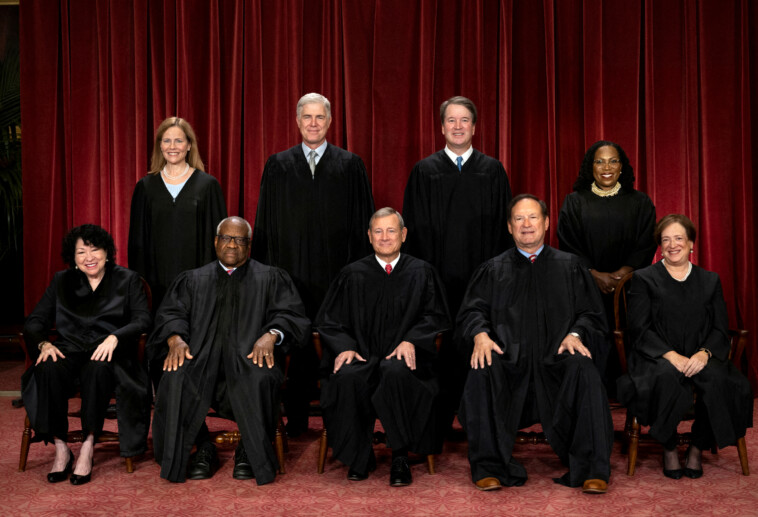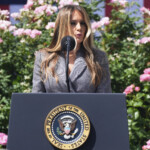The Supreme Court deadlocked Thursday in a case that decided whether Oklahoma could provide funding to a religious charter school, the justices’ first tie vote on a major case in nearly a decade.
The 4-4 split meant the justices upheld the Oklahoma Supreme Court’s ruling that both Sooner State law and the US Constitution prohibit taxpayer funding from going toward religious schools.
Justice Amy Coney Barrett had recused herself from arguments, having taught at the University of Notre Dame’s law school for about 15 years. The school’s religious liberty clinic had been representing one of the parties in the case, St. Isidore of Seville Catholic Virtual School.
It is not clear which way each of the other eight justices voted on the case and the Supreme Court did not issue a written decision due to the split.
The deadlock also means prior court rulings that permitted taxpayer-funded voucher money to flow to religious schools but blocked public schools and charter schools from teaching religion will stand. Religious liberty advocates had been hoping the Supreme Court would reverse those prior rulings.
In June 2023, the five-member Oklahoma Statewide Virtual Charter School Board approved St. Isidore’s operation application in a 3–2 vote.
State Attorney General Gentner Drummond sued the Board in response, arguing the approval was illegal and fretting that the move would “open the floodgates and force taxpayers to fund all manner of religious indoctrination, including radical Islam or even the Church of Satan.”
The case sparked a split among top Oklahoma Republicans. Both the Trump administration and Oklahoma GOP Gov. Kevin Stitt had sided with the charter school board and St. Isidore’s, which filed a separate lawsuit against Drummond that was consolidated into oral arguments last month. The aspiring charter school is named after the Catholic patron saint of students.
At the heart of the case was friction between the First Amendment’s Free Exercise Clause banning religious discrimination and the Constitution’s Establishment Clause, which restricts the government from favoring one religion over another.
During oral arguments late last month, most of the conservative justices generally sounded sympathetic to the Oklahoma charter school board’s decision to approve St. Isidore’s operation application, while liberal justices had been skeptical.
“All the religious school is saying is, ‘Don’t exclude us on account of our religion,’” conservative Justice Brett Kavanaugh argued at the time.
“Our cases have made very clear — I think those are some of the most important cases we’ve had — of saying you can’t treat religious people and religious institutions and religious speech as second-class.”
Chief Justice John Roberts, often a swing vote, had been largely quiet during oral arguments. Most of his questions appeared pointed against Drummond’s side of the case, which had argued against allowing state funding.
“What do you do with Fulton [v. City of Philadelphia] — the state agency that refused to deal with the religious adoption services. We held they couldn’t engage in that discrimination,” the chief justice had asked. “How is that different from what we have here?”
Liberal Justice Sonia Sotomayor complained that prospective students at St. Isidore’s would “have to accept the teachings of the church with respect to certain principles.” Fellow liberal Justice Ketanji Brown Jackson argued that “it’s not being denied a benefit that everyone else gets” if St. Isidore’s was denied its charter school application.
“It’s being denied a benefit that no one else gets, which is the ability to establish a religious public school.”
The Roberts court has generally leaned in favor of religious freedom in many hot-button cases that have come up over recent years. The high court is widely seen as having a 6-3 conservative majority when all justices are present.
One of the most high-profile recent ties on the Supreme Court took place in 2016, when US v. Texas was argued over then-President Barack Obama’s executive action establishing the Deferred Action for Parents of Americans (DAPA) policy, which would have shielded illegal immigrant parents whose children were American citizens or lawful permanent residents from deportation.
That deadlocked decision came as a result of the death of conservative Justice Antonin Scalia, which left the high court in a 4–4 split. That tie affirmed a lower court injunction that blocked the DAPA policy.








